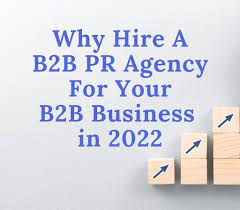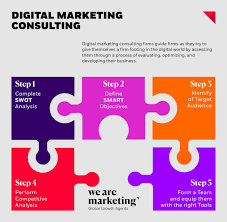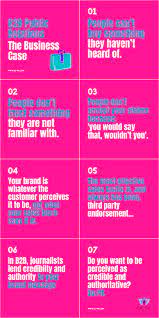Title: The Power of PR and Marketing Agencies in Driving Business Success
Introduction:
In today’s competitive business landscape, having a strong brand presence and effective communication strategy is crucial for success. This is where the expertise of PR (Public Relations) and marketing agencies comes into play. These agencies are dedicated to helping businesses navigate the complex world of communication, building brand reputation, and driving growth. In this article, we will explore the valuable role that PR and marketing agencies play in shaping businesses’ success.
Strategic Planning:
PR and marketing agencies excel at developing comprehensive strategies tailored to each client’s unique goals and target audience. They conduct thorough research to understand market trends, competitor analysis, and customer preferences. This enables them to craft compelling messages that resonate with the intended audience, ensuring maximum impact for their clients.
Building Brand Awareness:
One of the primary objectives of PR and marketing agencies is to enhance brand visibility. Through a range of tactics such as media relations, influencer partnerships, content creation, and social media management, these agencies help businesses reach their target audience effectively. By creating positive associations with their clients’ brands, they elevate brand awareness and drive customer engagement.
Reputation Management:
Maintaining a positive reputation is vital for any business’s long-term success. PR agencies specialize in managing reputational risks by implementing proactive strategies to address potential issues before they escalate into crises. They monitor online conversations, respond promptly to customer feedback or complaints, and ensure transparent communication during challenging times.
Media Relations:
PR agencies have established relationships with journalists across various media outlets. Leveraging these connections, they secure valuable media coverage for their clients through press releases, interviews, features, and thought leadership articles. This earned media helps enhance credibility while reaching a broader audience beyond traditional advertising channels.
Content Creation:
Compelling content lies at the heart of successful marketing campaigns. PR and marketing agencies possess expert storytellers who create engaging content that resonates with the target audience. From blog posts and articles to videos and infographics, these agencies ensure that the content aligns with the brand’s messaging and objectives, driving customer engagement and loyalty.
Digital Marketing Expertise:
In today’s digital age, having a strong online presence is essential. PR and marketing agencies are well-versed in digital marketing strategies, including search engine optimization (SEO), social media management, email marketing, and pay-per-click (PPC) advertising. They leverage these tools to amplify brand messaging, increase website traffic, and generate leads for their clients.
Conclusion:
PR and marketing agencies play a pivotal role in helping businesses achieve their communication goals and drive growth. By crafting tailored strategies, enhancing brand visibility, managing reputational risks, securing media coverage, creating compelling content, and leveraging digital marketing techniques, these agencies contribute significantly to their clients’ success. Partnering with a reputable PR and marketing agency can empower businesses to navigate the dynamic landscape of communication effectively while achieving long-term business objectives.
8 Essential Tips for Choosing a PR and Marketing Agency
- Choose a PR and marketing agency that has experience in working with businesses similar to yours.
- Ensure the agency you choose is up-to-date on the latest trends and technologies in PR and marketing.
- Look for an agency that offers a range of services such as public relations, advertising, social media, content creation, etc.
- Make sure you have a clear understanding of what services the agency provides and how they will be delivered before signing any contracts or agreements.
- Ask for references from previous clients to get an idea of the quality of work they provide.
- Ensure your chosen agency is transparent about their pricing structure and can provide detailed invoices for all services provided.
- Have regular meetings with your PR and marketing team to ensure objectives are being met and progress is being made towards achieving desired results from campaigns or strategies implemented by the agency
- Be open to trying new approaches suggested by your PR and marketing team; this could help increase engagement with potential customers or clients
Choose a PR and marketing agency that has experience in working with businesses similar to yours.
When it comes to selecting a PR and marketing agency for your business, one crucial tip stands out: choose an agency that has experience working with businesses similar to yours. This key factor can make a significant difference in the success of your communication efforts.
Why is this important? Well, an agency that has experience in your industry or niche will bring valuable insights and knowledge to the table. They will understand the unique challenges you face, the target audience you need to reach, and the competitive landscape you operate in. This familiarity enables them to develop tailored strategies that resonate with your specific market.
By choosing an agency with relevant experience, you can benefit from their understanding of industry trends, best practices, and effective communication channels. They have likely encountered similar obstacles before and have learned from those experiences, allowing them to provide valuable guidance on what works and what doesn’t.
Moreover, an agency that has worked with businesses similar to yours can offer case studies and success stories that demonstrate their ability to deliver results within your industry. This track record provides reassurance that they understand the dynamics of your market and can effectively navigate it.
Collaborating with a PR and marketing agency experienced in working with businesses like yours also means they have established relationships with relevant media outlets, influencers, and other key players within your industry. These connections can open doors for valuable partnerships and media coverage opportunities that might otherwise be challenging to secure.
Ultimately, choosing an agency familiar with your industry allows for a smoother collaboration process. They will speak the same language as you do, saving time on explaining industry-specific concepts or jargon. Their expertise will help streamline communication efforts while ensuring that your brand’s messaging remains consistent across all channels.
In conclusion, when selecting a PR and marketing agency for your business, prioritizing their experience in working with businesses similar to yours is a wise choice. Their industry-specific knowledge, insights into target audiences, established connections, and proven track record can significantly enhance the effectiveness of your communication strategies, ultimately driving your business towards success.
Ensure the agency you choose is up-to-date on the latest trends and technologies in PR and marketing.
Staying Ahead: The Importance of Choosing an Up-to-Date PR and Marketing Agency
In today’s fast-paced digital world, the landscape of PR and marketing is constantly evolving. To ensure the success of your business, it is crucial to partner with a PR and marketing agency that is up-to-date on the latest trends and technologies. Here’s why this tip should be at the top of your checklist when selecting an agency.
Firstly, an agency that stays current with industry trends demonstrates their commitment to excellence. They understand that what worked yesterday may not work today, and they continuously adapt their strategies to meet the ever-changing demands of the market. By choosing such an agency, you can be confident that they are equipped with the knowledge and skills needed to navigate the dynamic world of PR and marketing.
Secondly, keeping up with the latest trends allows agencies to leverage emerging technologies effectively. From social media platforms and influencer marketing to data analytics and automation tools, technology plays a significant role in modern communication strategies. An agency well-versed in these advancements can harness their power to drive results for your business. They will know how to maximize your online presence, target specific audiences, measure campaign effectiveness, and stay ahead of competitors.
Moreover, working with an up-to-date agency ensures that your brand remains relevant in a rapidly changing marketplace. By staying informed about industry trends, they can help you identify new opportunities for growth and innovation. Whether it’s adopting new communication channels or capitalizing on emerging consumer preferences, an agency at the forefront of industry developments can guide you towards staying ahead of the curve.
Additionally, an up-to-date agency brings fresh perspectives and creative ideas to the table. They are constantly exploring innovative approaches that resonate with today’s consumers who are bombarded with information from multiple sources. By incorporating cutting-edge tactics into your campaigns, they can captivate audiences in unique ways while differentiating your brand from competitors.
Lastly, choosing an agency that is up-to-date on trends and technologies ensures efficient and effective communication. They will be well-versed in the latest tools and platforms, allowing for seamless collaboration, streamlined workflows, and data-driven decision-making. This ultimately saves time, optimizes resources, and delivers measurable results.
In conclusion, partnering with a PR and marketing agency that prioritizes staying up-to-date on the latest trends and technologies is essential for your business’s success. Their ability to adapt to industry changes, leverage emerging technologies, keep your brand relevant, provide fresh perspectives, and ensure efficient communication sets them apart from the competition. So when selecting an agency, remember to choose one that embraces innovation and understands the power of staying ahead in the ever-evolving world of PR and marketing.
Look for an agency that offers a range of services such as public relations, advertising, social media, content creation, etc.
Title: The Advantages of Choosing a Full-Service PR and Marketing Agency
In today’s fast-paced business environment, having a strong and cohesive communication strategy is vital for success. When searching for a PR and marketing agency to partner with, it’s crucial to look for one that offers a comprehensive range of services. Opting for a full-service agency that provides public relations, advertising, social media management, content creation, and more can offer several advantages.
Streamlined Communication:
By choosing an agency that offers multiple services, you can streamline your communication efforts. Instead of working with different agencies or freelancers for various aspects of your marketing strategy, a full-service agency provides a one-stop solution. This ensures better coordination and integration across different channels, resulting in consistent messaging and improved efficiency.
Consistent Brand Identity:
Maintaining a consistent brand identity is crucial in building trust and recognition among your target audience. A full-service agency can help you develop and maintain a cohesive brand identity across various platforms. From designing visually appealing advertisements to crafting engaging social media posts and creating compelling content, they ensure that your brand’s essence remains intact throughout all communication channels.
Cross-Channel Integration:
In today’s digital landscape, successful marketing campaigns require cross-channel integration. A full-service agency can seamlessly integrate your PR efforts with advertising campaigns, social media strategies, content creation initiatives, and more. This holistic approach ensures that all aspects of your marketing mix work together synergistically to achieve your business objectives.
Efficient Resource Allocation:
Working with multiple agencies or freelancers means managing different contracts, timelines, budgets, and points of contact. By partnering with a full-service agency that offers various services under one roof, you can simplify the resource allocation process. This enables you to focus on strategic decision-making rather than spending time coordinating between different parties.
Comprehensive Expertise:
A full-service agency typically consists of a diverse team with expertise in various areas of PR and marketing. From PR specialists to social media managers, content creators, graphic designers, and digital marketers, they bring a wealth of knowledge and experience to the table. This comprehensive expertise allows them to develop integrated campaigns that leverage the strengths of each service, resulting in more impactful outcomes.
Cost-Effective Solutions:
Choosing a full-service agency can also be cost-effective in the long run. While individual services may seem cheaper when outsourced separately, working with multiple agencies can lead to higher overall costs due to coordination efforts and potential inconsistencies. A full-service agency can provide bundled services at a competitive price while ensuring seamless integration and consistent quality.
In conclusion, partnering with a full-service PR and marketing agency that offers a range of services can bring numerous benefits to your business. From streamlined communication and consistent brand identity to cross-channel integration, efficient resource allocation, comprehensive expertise, and cost-effective solutions – these agencies provide holistic support for your communication needs. Consider the advantages of working with a full-service agency as you embark on your journey towards effective PR and marketing strategies.
Make sure you have a clear understanding of what services the agency provides and how they will be delivered before signing any contracts or agreements.
Title: Ensuring Clarity: A Key Tip for Choosing a PR and Marketing Agency
In the fast-paced world of business, effective communication and strategic marketing are essential to stand out from the competition. This is where PR and marketing agencies come into play, offering their expertise to help businesses thrive. However, before signing any contracts or agreements with an agency, it is crucial to have a clear understanding of the services they provide and how they will be delivered. This simple yet vital tip can save you from potential misunderstandings and ensure a successful partnership.
When considering a PR and marketing agency, take the time to thoroughly review their service offerings. Do they specialize in media relations, content creation, social media management, or all of the above? Understanding their core competencies will help you determine if their expertise aligns with your specific needs.
Additionally, inquire about their approach to delivering these services. Will they provide regular progress reports? How often will you have communication with your account manager or team? Clarifying these details upfront will set expectations and establish a transparent working relationship.
It’s also important to discuss timelines and deadlines with the agency. Make sure you understand how long certain projects or campaigns may take to complete. This will help you plan your own internal processes accordingly.
By having a clear understanding of what services the agency provides and how they will be delivered, you can avoid potential miscommunications down the line. It allows both parties to be on the same page right from the start and ensures that everyone involved has a shared vision for success.
Remember, effective communication is at the heart of any successful partnership. Don’t hesitate to ask questions and seek clarification before committing to any agreements. A reputable PR and marketing agency will appreciate your diligence in understanding their services and will be more than willing to address any concerns or uncertainties you may have.
In conclusion, when choosing a PR and marketing agency for your business needs, make sure you have a clear understanding of the services they provide and how they will be delivered. This tip will help you establish a strong foundation for a successful partnership, ensuring that your business goals are met and your communication strategies are executed seamlessly.
Ask for references from previous clients to get an idea of the quality of work they provide.
When it comes to choosing a PR and marketing agency, one of the most valuable tips is to ask for references from previous clients. This simple step can provide you with valuable insights into the quality of work the agency provides and help you make an informed decision.
By reaching out to past clients, you can gain firsthand knowledge about their experiences working with the agency. They can share their thoughts on the agency’s professionalism, communication skills, creativity, and ability to deliver results. References allow you to gauge whether the agency aligns with your specific needs and expectations.
Speaking directly with previous clients also gives you the opportunity to ask specific questions about their projects. You can inquire about the agency’s responsiveness, adherence to deadlines, and their overall satisfaction with the outcomes achieved. This information will help you assess whether the agency has a track record of delivering high-quality work.
Additionally, references provide an opportunity to uncover any potential red flags or areas of concern. If multiple clients express similar issues or concerns, it may indicate a pattern that could impact your own experience with the agency.
Remember that not all agencies may be able to provide references due to confidentiality agreements or client preferences. However, when references are available, they offer valuable insights that can inform your decision-making process.
In summary, asking for references from previous clients is a crucial step in selecting a PR and marketing agency. It allows you to gather feedback on their performance, assess their ability to meet your needs, and make an informed decision based on real-world experiences. By doing so, you increase your chances of finding an agency that will be a reliable partner in achieving your communication goals and driving business success.
Ensure your chosen agency is transparent about their pricing structure and can provide detailed invoices for all services provided.
When selecting a PR and marketing agency to partner with, it is essential to consider various factors that contribute to a successful collaboration. One crucial aspect often overlooked is transparency in pricing structure and invoicing. By ensuring that your chosen agency is transparent about their pricing and can provide detailed invoices for all services rendered, you can establish a foundation of trust and avoid any potential misunderstandings.
Transparency in pricing structure allows you to have a clear understanding of the costs associated with the services provided by the agency. It enables you to evaluate whether the proposed budget aligns with your business goals and expectations. A reputable agency will be upfront about their fees, including any additional charges or potential expenses that may arise during the course of your partnership.
Detailed invoices play a significant role in maintaining transparency throughout your collaboration. They provide an itemized breakdown of the services rendered, allowing you to see exactly what you are paying for. This level of detail not only helps you track the progress and effectiveness of each service but also ensures accountability on both sides.
By receiving detailed invoices, you can assess the value delivered by the agency against your investment. It allows for better financial planning and provides insights into how your budget is being utilized. Moreover, it facilitates open communication between you and the agency, enabling discussions about any discrepancies or adjustments that may be necessary.
Transparency in pricing structure and invoicing also serves as an indicator of the agency’s professionalism and commitment to client satisfaction. A trustworthy agency will be more than willing to address any questions or concerns regarding their pricing practices.
In conclusion, when choosing a PR and marketing agency, it is crucial to prioritize transparency in their pricing structure and invoicing practices. This ensures that both parties have a clear understanding of costs, fosters trust in the partnership, facilitates effective financial planning, and promotes open communication throughout the collaboration. By selecting an agency that values transparency, you set yourself up for a successful working relationship built on honesty and accountability.
Have regular meetings with your PR and marketing team to ensure objectives are being met and progress is being made towards achieving desired results from campaigns or strategies implemented by the agency
Regular meetings with your PR and marketing team are essential for ensuring that your business objectives are being met and progress is being made towards achieving desired results from the campaigns or strategies implemented by the agency. These meetings serve as a valuable platform for communication, collaboration, and evaluation.
By scheduling regular meetings, you create a structured environment where you can discuss the ongoing projects, review performance metrics, and address any concerns or challenges that may arise. This open line of communication allows for transparency and ensures that everyone is on the same page regarding goals, timelines, and expectations.
During these meetings, it is crucial to assess the progress made towards achieving the desired results. Your PR and marketing team can provide updates on the status of ongoing campaigns, highlight key achievements, and share insights gained through their efforts. This information allows you to gauge whether the strategies implemented are effective in driving your business forward.
Additionally, regular meetings provide an opportunity to align your objectives with the agency’s activities. By discussing your business goals and expectations during these sessions, you enable your PR and marketing team to tailor their efforts accordingly. They can make necessary adjustments or recommendations based on your feedback to ensure that their work aligns with your broader vision.
These meetings also foster a collaborative environment where ideas can be shared freely. Encourage open dialogue between your team members and agency representatives to promote creativity and innovation. This exchange of ideas can lead to fresh perspectives, new strategies, and ultimately more successful campaigns.
Furthermore, regular meetings allow you to stay informed about industry trends and market developments. Your PR and marketing team can provide valuable insights gained through their research or interactions with media outlets or influencers. By staying up-to-date with these trends, you can make informed decisions about future strategies or adjustments needed in current campaigns.
In conclusion, having regular meetings with your PR and marketing team is vital for ensuring that objectives are being met and progress is being made towards achieving desired results. These meetings facilitate effective communication, alignment of goals, evaluation of performance, and the opportunity for collaboration. By actively engaging with your agency, you can maximize the impact of your PR and marketing efforts and drive your business towards success.
Be open to trying new approaches suggested by your PR and marketing team; this could help increase engagement with potential customers or clients
In the fast-paced world of PR and marketing, staying ahead of the game requires a willingness to embrace new approaches. When working with a PR and marketing agency, it’s essential to be open to trying out innovative strategies suggested by your team. This openness can lead to increased engagement with potential customers or clients, ultimately driving business growth.
PR and marketing professionals are constantly exploring fresh ideas and keeping up with the latest trends in the industry. They have a wealth of experience and insights that can help your business stand out from the competition. By being receptive to their suggestions, you open doors to exciting opportunities that may have been overlooked otherwise.
When your team proposes new approaches, it’s important to remember that they have your best interests at heart. They understand your target audience and know how to craft messages that resonate with them. By trying out these new strategies, you can tap into different channels or platforms that may yield better results in terms of customer engagement.
Furthermore, embracing new approaches demonstrates a willingness to adapt and evolve alongside changing market dynamics. Consumer preferences are constantly evolving, and what worked yesterday may not work tomorrow. By being open-minded, you allow your PR and marketing team to explore innovative tactics that align with current trends and consumer behaviours.
Remember that not every idea will be a home run, but by giving them a chance, you create an environment where creativity flourishes. Encouraging experimentation fosters a sense of collaboration between you and your PR and marketing team, leading to better outcomes in the long run.
In conclusion, being open to trying new approaches suggested by your PR and marketing team is essential for increasing engagement with potential customers or clients. Embracing innovation allows you to tap into fresh ideas, reach new audiences through different channels or platforms, adapt to changing market dynamics, and foster collaboration within your team. So why not take the leap? Be open-minded and let your PR and marketing experts guide you towards greater success in the ever-evolving world of business.










